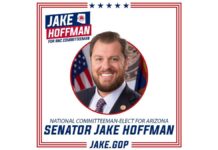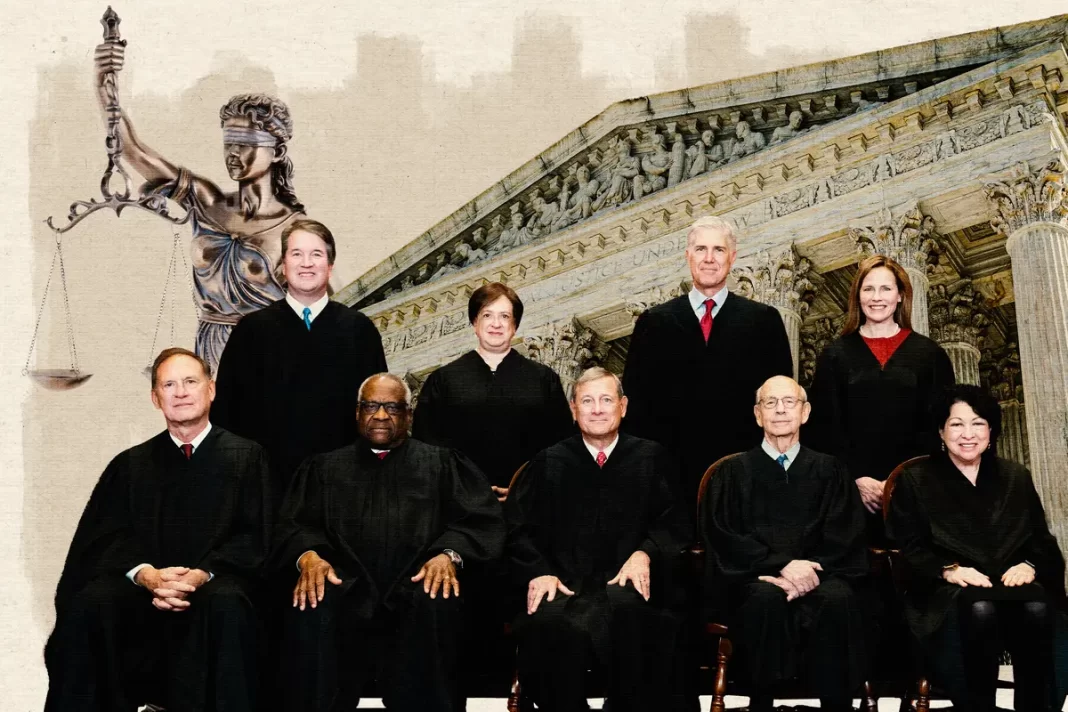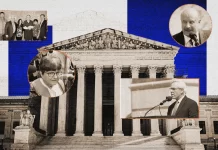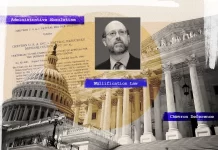The Supreme Court is reviewing the administrative state’s power with several cases this term that could make major changes to the way agencies regulate.
The U.S. Supreme Court has taken up several cases this term that pose challenges to the administrative state, following years of concerted legal and political opposition to its legitimacy.
Specifically, the justices are set to reevaluate the decades-old doctrine known as Chevron deference. This involves the case Chevron v. NRDC (Natural Resources Defense Council), which has been cited more than 18,000 times by federal courts and is “unquestionably one of the foundational decisions in administrative law,” according to the Congressional Research Service.
The 1984 precedent held that courts generally should defer to agencies’ interpretations of ambiguous language in congressional statutes.
For this term, the court is reviewing, in two related cases, whether the Commerce Department adhered to Congress’s instructions when it required commercial fishing companies to pay for federal observers monitoring their activity on vessels. Several businesses in the industry have sued, arguing that Congress didn’t authorize that requirement in the Magnuson Stevens Fishery Conservation and Management Act.
The government counters that the requirement is a reasonable way to apply the statute. The cases are Loper Bright Enterprises v. Raimondo and Relentless Inc. v. Department of Commerce. Oral argument is scheduled for Jan. 17.
Two other cases—Consumer Financial Protection Bureau (CFPB) v. Community Financial Services Association of America (CFSA) and Securities and Exchange Commission (SEC) v. Jarkesy—take a look at how agencies may adjudicate disputes in administrative courts, as well as appropriate or allocate funds in a way many argue should be left to Congress. Instead of reevaluating longstanding judicial doctrine, the cases examine specific actions by Congress and the executive in light of constitutional restrictions.
The CFPB case, for example, questions whether Congress violated the appropriations clause of the U.S. Constitution when it allowed the agency to determine its own funding levels while drawing money from the semiautonomous Federal Reserve. The Jarkesy case, meanwhile, asks whether the SEC’s administrative courts violate the Seventh Amendment by not impaneling a jury.
By Sam Dorman and Matthew Vadum















































